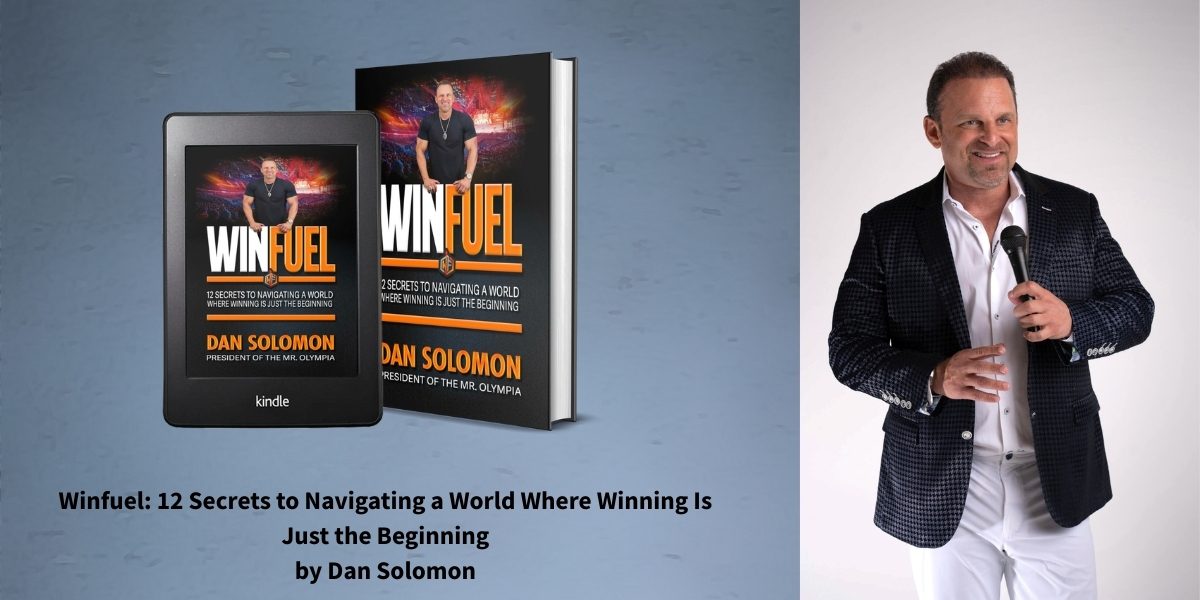By: Michael Beas
In an age defined by noise, speed, and endless competition, very few leaders understand the difference between winning and winning sustainably. Dan Solomon—former President of Mr. Olympia and author of WINFUEL: 12 Secrets to Navigating a World Where Winning Is Just the Beginning—has spent decades operating behind a globally recognized fitness brand. His insights extend well beyond bodybuilders, arenas, and global productions. They tap into the essence of what it means to lead with clarity, momentum, and authentic influence.
Solomon’s leadership philosophy is built on something deeper than speeches, KPIs, or motivational jargon. It’s grounded in human connection, long-term vision, and an uncompromising understanding of how energy drives every outcome. At a time when leaders are stretched thin and teams are fatigued, his approach feels refreshingly direct—and urgently relevant.
The DNA of Leadership: Being Seen vs. Being Heard
Ask Solomon what non-negotiables define a great leader, and he doesn’t hesitate.
“Spend less time trying to be heard,” he says, “and more time making your followers feel seen.”
It’s a deceptively simple insight. In many organizations, leaders focus heavily on persuasion through presentations, directives, policies, and broadcasts. But according to Solomon, sustainable momentum isn’t built by the loudest voice in the room. It’s built by leaders who create psychological visibility, ensuring their people feel recognized and valued.
Another unexpected pillar of his leadership DNA? Fear.
“Allow fear to serve as fuel,” he explains. Instead of avoiding discomfort, he urges leaders to integrate it—to let it sharpen decision-making and propel action.
And perhaps a grounding piece of wisdom: “Go into every situation with a solid understanding that you’ll never make everyone happy. Stay the course.”
For Solomon, leadership is not a popularity contest. It’s a commitment to the mission—even when resistance shows up.
Vision into Velocity: The Art of Working Backwards
One of the central themes of WINFUEL is momentum. Not the adrenaline rush of a big idea, but the disciplined, repeatable momentum that turns vision into tangible success. Solomon believes the key lies in reverse engineering.
“Work backwards. Keep an eye on the endgame. Focus on what the ‘win’ looks like.”
This approach transforms ambition from something abstract into a set of actionable milestones. Leaders often get stuck in the haze of possibility—they see the mountain but not the path. Solomon’s method clears the fog. By defining the destination with clarity, teams can break the journey into measurable steps that create early wins and a long-term trajectory.
And momentum, he says, compounds quickly when every milestone is aligned with a shared north star.
Activating Connection: The Currency of Contribution
In an era where networking has become transactional and performative, Solomon pushes for something different: intention.
“Walk into every room, every negotiation, with a focus on what you can deliver. Not what you can take.”
This perspective transforms relationships from short-term exchanges into long-term alliances. By identifying problems they can solve, leaders earn something far more valuable than contacts—they earn trust. And trust, Solomon emphasizes, is the foundation of collaboration that scales.
His philosophy reframes the connection from self-serving to service-driven. This is how networks become ecosystems and how individual success multiplies into shared success.
Leadership Across Industries: The Power of Empathy
Solomon’s journey from media and event production into global executive leadership has given him a panoramic view of team dynamics, industry pressures, and cultural nuances. But the greatest lesson he’s learned is less tactical and more human.
“Adapting to differing cultures and dynamics is born from empathy—the most undervalued attribute a leader can have.”
He believes great leaders are forged through exposure: seeing the world from multiple vantage points, standing in various shoes, and developing a sensitivity to the needs and motivations of others.
The prolonged path to success, he notes, is an asset—not a detour. It cultivates understanding. And understanding cultivates adaptability.
The Energy Economy: Why Leadership Is a Vibe
Perhaps the distinctive element of Solomon’s philosophy is his emphasis on what he calls “magnetic energy.” It’s not charisma in the theatrical sense—it’s presence, authenticity, and the emotional current leaders bring into every room.
“Energy is currency,” he says. “It communicates a message long before you open your mouth.”
Employees feel it. Partners feel it. Audiences feel it.
According to Solomon, leaders drive outcomes not only through strategy but through the atmosphere they create. Energy can either uplift or drain a meeting. It can spark movement or stall it. It can inspire or intimidate.
To cultivate magnetic energy, he offers a simple but powerful exercise: “Allow yourself the ability to see yourself through the eyes of the people in front of you.”
This self-awareness—how one’s presence affects others—is the cornerstone of leadership influence.
A New Playbook for a New Era
Dan Solomon’s perspective is not about winning in the traditional sense. It’s about winning with longevity—where success is measured not only by results but by the momentum, relationships, and energy you bring into the world.
His message is clear: leadership today demands visibility, empathy, clarity of vision, and a contagious drive that others can feel. It requires serving before asking, planning before pushing, and understanding before leading.
In a world obsessed with scaling fast and shouting loudly, Solomon reminds us that true leadership is built quietly—through attention, intention, and the kind of presence that others want to follow.









